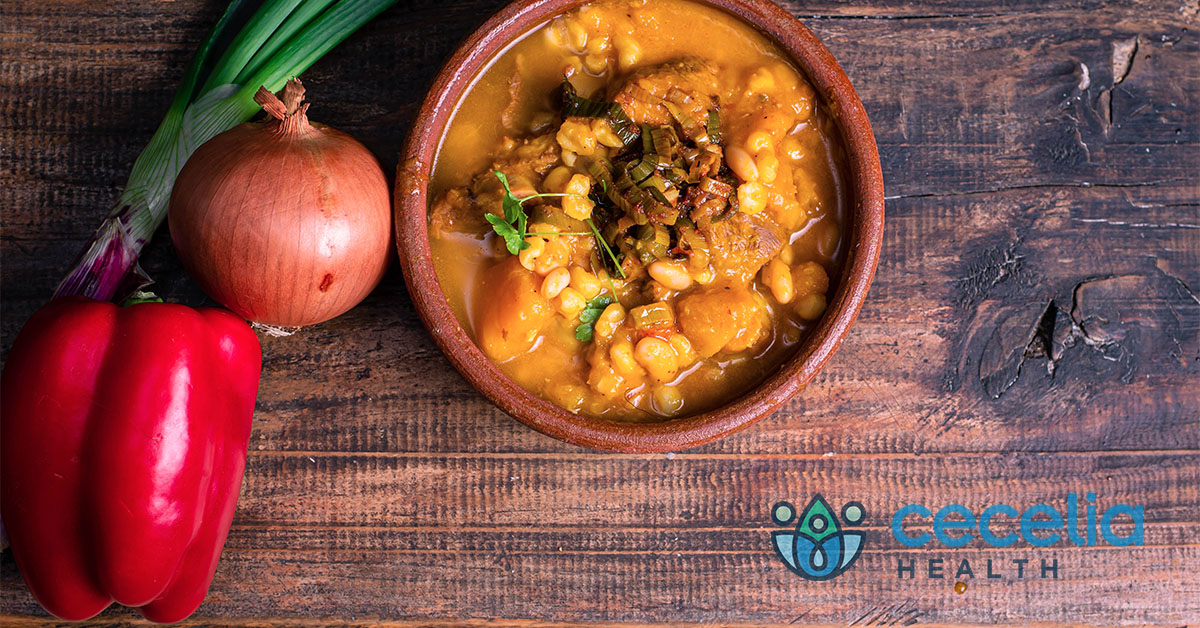When the weather turns crisp and you start to spend more time indoors, concerns about seasonal illnesses like colds and influenza begin to take hold. Now more than ever, it is important to keep your immune systems healthy not just in the Winter, but year-round to deal with Covid-19, stresses of daily life and then some! Your daily diet (in addition to good hygiene, plenty of rest, exercise and stress management) is key to strengthening and maintaining the immune system. Let’s take a look at a variety of powerful immune-boosting foods you can include in your daily diet that are also appropriate for managing diabetes.
- Citrus fruits and bell peppers
Citrus fruits like oranges, lemon, limes, grapefruits and tangerines, along with bell peppers, are rich sources of vitamin C, a well-known powerhouse nutrient for keeping infections at bay. Vitamin C is a potent antioxidant that helps decrease inflammation and harmful free radicals that cause cell damage, helps in wound healing and assists with the production of white blood cells that fight off illness. Although it’s tempting to pop a vitamin C pill or guzzle a glass of OJ, try to get your vitamin C from whole food sources of the nutrient, like citrus fruits and bell peppers, so you can get more fiber, less calories and sugar, along with good dietary dose of this key vitamin. Snack on oranges and grapefruits, squeeze citrus into your water or on fish/veggies. Add orange or tangerine sections to salads for extra tang and nutrition.
- Beans
Aside from being a great source of plant-based protein, and high in fiber for both blood sugar and weight control, beans and legumes are great for immune health as well. Beans/legumes, especially chickpeas, are a good source of zinc. The mineral zinc is also helpful to maintaining immune function and wound healing. Sprinkle beans on salads, add them to soups, blend them into dips or roast chickpeas in the oven with some olive oil for a crunchy fiber packed snack.
- Soups
Being under the weather often brings one thing to mind- chicken soup!!…and there is actually sound scientific reason! Chicken contains lean protein that, along with helping with you feel satisfied and controlling blood sugar, plays an important role in supporting the body’s T-cells, which help fight off infection. Chicken also has vitamin B6, which boosts the body’s ability to make antibodies that are key to immune functioning. Soups, like chicken well as vegetable or lentil, are also a great way to provide warm soothing fluids to keep you extra hydrated during the colder/drier weather. Soups are a nice opportunity to incorporate more vegetables into meals, like carrots, celery, cabbage, and onions which are high in fiber and antioxidants like vitamin A and C, along with beans/lentils which have many health benefits as described above.
- Tea
Nothing helps wind the day down or sooth a tired soul like a warm cup of tea, and it’s health benefits are plentiful as well. Tea contains polyphenols, which are powerful antioxidants that decrease free radicals/cell damage, fight inflammations and protect the immune system. It also is a great source of hydration and, assuming you do not add sugar, will not raise blood sugar or add extra calories.
- Turmeric, garlic and ginger
These three spices are a power immune boosting trio. They all contain potent antioxidants, fight inflammation and have potential anti-viral and antibacterial effects to help decrease illness. Some research has also suggested that turmeric and ginger can help with nausea and indigestion. Add them to stir fries, soups, and curries to add flavor and promote immunity.
- Fermented Foods
Fermented foods include:
- yogurt and kefir (a drink made from fermented milk)
- kimchi- a side dish made from fermented cabbage and sometimes other veggies like radish
- miso-a paste-like seasoning made from fermented soybeans
- tempeh-fermented soybeans pressed into a cake
- kombucha-fermented green or black tea
- sauerkraut- fermented cabbage
This variety of fermented foods contain good bacteria, called probiotics, that not only help with better digestion, but also are associated decreased inflammation and improved immunity. All of these foods are low in calories and sugar (assuming you choose unsweetened yogurt/kefir) so they will not raise blood glucose as sharply and may even help improve it, according to research. Enjoy yogurt with fresh berries or kefir blended in a smoothie as breakfast or a snack. Try kimchi and sauerkraut as tangy side dishes to kick up the flavor of your meals. Miso works great in soups, salad dressings, marinades and sauces. Use tempeh as a meat substitute in stir fries or veggie burgers. Enjoy kombucha as a healthy immune boosting beverage throughout the day.
